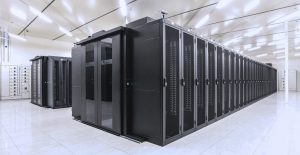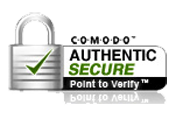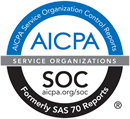Contact Us
- Call Now:(01)773-455-6676
- Sales Email:sales@dedicatedhosting4u.com
- Support Email:support@dedicatedhosting4u.com
- Billing Email:billing@dedicatedhosting4u.com
Close Support
Data center web hosting
Data center web hosting
The first thing a business owner should choose perfectly a data center from multiple proposed data centers. Now the question is that how a data center can be chosen perfectly? There are some factors that enable users to choose perfect data center web hosting. The first factor is to setup company’s requirement that, how the company will use the server. Second is to search the related proposed setting and configurations that will suit business’s requirement. The third one is your budget, according to your profit.
Factors to choose right web hosting data center
The features user should find in a data center:
Such as, we are using a hypothetical equation. Suppose one company leading as a web development company with 30 – 40 employees. All employees are highly experienced in the use of computers. They understand technical things very well. Their work efforts have been  drawing every year, so many profits and benefits in products also. Due to some new projects the company is recruiting some new 10 employees. Now every employee will generate at least 10 files every day for their work purpose. This should be viewed in the server to display to the clients. And if the clients are numbered from 60 then, a number of page views will be generated. And in a month the amount of files and page views are not small. Then you will need high server load like the below example:
drawing every year, so many profits and benefits in products also. Due to some new projects the company is recruiting some new 10 employees. Now every employee will generate at least 10 files every day for their work purpose. This should be viewed in the server to display to the clients. And if the clients are numbered from 60 then, a number of page views will be generated. And in a month the amount of files and page views are not small. Then you will need high server load like the below example:
The company should find a server which is structured by
- 64 Gigabytes RAM
- 4x Quad-Core Intel Xeon
- Sixty Four (64)
- Two (2) Terabytes Bandwidth
- 15K, 2x73GB, SAS – (RAID)
- Company also should care about the level of the service. So they should check the following feature also.
- Devices to Key card and bio metric scanning with 24/7 interior as well as exterior investigation afford wide monitoring on the data center.
- Company should check once whether only those users are authenticated to enter in the system that are responsible for the server management and they can work perfectly. No one should get further access on the servers who are not responsible and not liable for any damage in the server.
- All employees in the data center web hosting are properly verified before them, being hired by checking background and private inquiries.
- Heating Ventilation Air Conditioning (HVAC) is N+1 redundant for each data center system. This is just because of keeping server to stay online when the heat is high. All soils and chemicals are should be removed from the server premises in every 190 seconds.
- The room should be captured by ‘Fire suppression’ systems that are in a place to turn off fires at the moment of it occurs.
- Server should be supplied by multiple option of power like electric, generator, inverter, etc.
The server should be managed by the data centre web hosting provider or by personal employees to make its high security as a dedicated server
Key Points to Consider When Choosing a Data Center
Managing an in-house data center takes time, IT skills, and a large budget, which is why most companies choose to outsource their operations to a third-party facility. While colocation may seem like an obvious decision for many businesses, selecting the correct service provider is not easy.
This article explains how a company should go about choosing a data center. We go through the most important things to think about when choosing a colocation facility, as well as how to identify a partner who can help you achieve your business’s goals.
- Geographical location
When choosing a data center, one of the most crucial elements to consider is the location. Although you may save money by going to a facility further away, you will forfeit some of the advantages of being nearby.
The distance between your firm and your data center will affect Internet speed, depending on the sort of wire you’re using. Copper wires lose strength about 330 feet and must be replaced if the signal is to be maintained. This isn’t an issue with fiber, which may reach over 25 miles before you feel even a minor slowdown.
Finding a data centre on a separate power grid and away from any possible risk is the safer choice in locations prone to natural catastrophes. Your data won’t be affected at the same time as your company’s office if you use a data centre on a different power grid, decreasing the amount of difficulties you’ll have to deal with at the same time in the case of a significant regional power outage.
Finally, you should make certain that the data centre is conveniently accessible. You won’t have to pay as much for useless travel time if your IT team wants to perform maintenance or updates.
- Dependability
A data center that is suitable must have a backup power supply. Examine the data center’s redundant systems in the event of an emergency or adverse weather. You’ll also want to make sure their infrastructure has adequate ventilation and cooling.
Within one year, 93 percent of enterprises who lost their data centre for 10 days or longer due to a disaster filed for bankruptcy. To avoid becoming a bankruptcy statistic, look for a dependability rate of over 99 percent.
- Safety and security
A good security system is essential for a data centre. Because it holds all of your company’s data and apps, a breach might spell disaster. A cyber assault on a data center costs around $4 million on average.
Data centers should have robust physical security as well as software and technology to secure your assets. Your facility should have adequate locks, monitoring, and sometimes even security guards, depending on its size.
- Capacity of Network Services
Without updating infrastructure, all data centres have a capacity limit. Variables such as network stability, speed, and even security can provide insight into the network’s strength.
If you choose a data centre that supports fibre optic cable, be sure it has the room and power to fulfil your future requirements. Determine how much bandwidth you’ll require as your firm expands so you can prepare for it from the start.
Investing in server colocation is another option to have more control over your data center’s entire capacity. This necessitates the use of a common local facility. The data centre operator maintains the electricity, cooling, and security infrastructure while you rent space. You’ll get 24/7 personnel and improved security procedures in addition to splitting the space and paying by the rack.
- Scalability and flexibility
If your company has a lot of shifting requirements as it pivots to various initiatives, finding a data center that can keep up with them is critical. Fortunately, advances in modern technology are allowing us to become more adaptable.
- Back-up System
Any single points of failure in a good data center have been identified, and risks have been mitigated. Natural catastrophes and power outages, as previously mentioned, are possible concerns for these infrastructures.
For emergency power, every medium to large data center will require a centralized uninterruptible power system (UPS). When the original power supply is cut, these systems automatically turn on and indicate the amount of energy left before they run out. Even if you aren’t in a region where power outages are common, backup generators should be kept on hand.
- Good name
Do your homework to learn about the data center’s reputation, just like you would with any other transaction. While no service provider is flawless, reading client reviews and comments might provide your insight into how the center addresses problems.
8.Neutrality of Carrier
It’s best if your data center is carrier-agnostic. Because the facility may switch between providers if one of them has a problem, neutrality provides a high level of adaptability. Look for a data center that offers a diverse set of services, such as:
- Internet service providers.
- Facilities for Internet exchange (IX).
- Cloud service providers
It is critical to have access to several networks and operators. You can build up hybrid and multi-cloud infrastructures without risking vendor lock-in thanks to a choice of cloud alternatives and connections.
9.Hands-on assistance
Different data centers provide varied levels of assistance. You might want assistance with your equipment’s setup or migration. Because your in-house workers will not be on-site to manage all alerts and events, your IT infrastructure will require monitoring and maintenance once it is set up.
In terms of support, the following are the most important elements to consider when choosing a data center:
- How the data center may assist with the initial setup.
- The extent of post-setup assistance.
- The monitoring software used by the center’s staff.
- Is the customer service available 24 hours a day, 7 days a week, 365 days a year?
- On-site engineers’ technical credentials.
- Reporting and remote monitoring capabilities.
- If the facility allows you to see all of your deployments in one place.
10.Pricing and Costs
You should be aware of what you’re paying for and why. A monthly colocation charge typically varies from $45 to $300 per unit. The price is determined by the quantity of bandwidth and IP addresses available, but operating costs (such as electricity and cooling) can also add up.
Keep in mind that colocation services are more expensive up front than cloud computing hosting. Instead of transferring data to the cloud and depending on virtual machines, you should invest in hardware.




